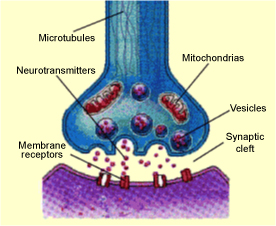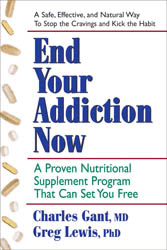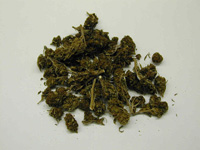Another famous entertainer - Whitney Houston - dies, apparently of drugs and alcohol. Another senseless death that could have been prevented if she had received effective drug addiction treatment.
Whitney Houston is Another Failed Rehab That Ends in Death
February 13th, 2012 · No Comments
Tags: Drug Abuse
Failure of Antidepressant Drugs
February 8th, 2011 · No Comments
Have you been easily prescribed for antidepressant drugs? Have you noticed that they didn’t work for you?
Here is a research report for you – The Emperor’s New Drugs: An Analysis of Antidepressant Medication Data Submitted to the U.S. Food and Drug Administration, Prevention & Treatment by the American Psychological Association, reveals amazing evidence that antidepressants don’t really work.
The study analyzed the six most widely prescribed antidepressants (SSRI) approved between 1987 and 1999: fluoxetine (Prozac), paroxetine (Paxil), sertraline (Zoloft), venlafaxine (Effexor), nefazodone (Serzone), and citalopram (Celexa).
The study concluded that the difference between the drug and a placebo is relatively small and its clinical significance is dubious. Therefore “there may be little justification for the clinical use of these medications”.
Tags: Prescription Drugs Addiction
Suicide Rates For Children Have Doubled
January 27th, 2011 · No Comments
Suicide rates have now DOUBLED for children of 5-14 years old in the past generation and has been the third leading cause of death for well over a generation.
Last year 15 million prescriptions were written for (SSRI) antidepressants for children and teenagers.
Do you think there is a correlation?
Recently the (FDA) acknowledged an increased suicide risk associated with children taking (SSRI) antidepressants.
More children and youth (ages 5-24 years) have committed suicide in the past ten years than the total number of American combat lives lost in the ten year Vietnam War (est. 55,000 v 47,355), yet little or no public attention has been given to this reality and what it represents.
The mental health of our children is worse off today than it was 50 years ago. But for years the National Institute of Health (NIH) has been following a biomedical model that seeks a drug to solve every problem. It’s clearly been a massive failure.
Tags: Prescription Drugs Addiction
Brain Neurotransmitters and Addictions
December 9th, 2009 · No Comments
 It’s been only about a quarter of a century since we discovered that, contrary to what we’d thought for decades prior to that time, the brain actually sends signals from one neuron to another by means of chemical molecules, called neurotransmitters. That discovery has enabled us to put together the pieces of the puzzle of addiction in a way that we simply hadn’t been able to do before we knew about these amazing chemical messengers.
It’s been only about a quarter of a century since we discovered that, contrary to what we’d thought for decades prior to that time, the brain actually sends signals from one neuron to another by means of chemical molecules, called neurotransmitters. That discovery has enabled us to put together the pieces of the puzzle of addiction in a way that we simply hadn’t been able to do before we knew about these amazing chemical messengers.
Brain Neurotransmitters
Once we’d begun to understand how brain neurotransmitters work, we also began to understand how they control our moods, memory, thinking, and behavior. Each of our brain cells is a tiny but very powerful manufacturing plant that assembles these chemical molecules out of nutrients and passes them along to other neurons. When our brains have enough of the nutrients necessary to manufacture all of the neurotransmitters we need, we’re able to feel relaxed and alert, focused and free of fear, happy and pain-free. In short, when our brains have the nutrients they need to create neurotransmitters in the necessary quantities, we’re most fully alive, engaged, and productive.
Neurotransmitters and Addiction
When we’re unable to produce these chemical messengers in the necessary quantities, our moods, intellectual capability and behavior tend to deteriorate. We’re often unable to focus, we tend to worry about things that we probably shouldn’t be concerned with, we’re not “up” and alert and happy, and we have difficulty coping with pain, whether the pain is physical or emotional.
If neurotransmitter deficiencies persist over time, we’re often led to use prescription drugs, alcohol, so-called “street drugs”, and other substances, including nicotine, to substitute for our transmitter shortages. These drugs are capable of temporarily alleviating the symptoms of neurotransmitter deficiencies, but continued use of these substances can, often quite quickly, result in addiction, a situation in which our brains adapt and begin to rely on these transmitter substitutes to keep us going.
Tags: Drugs and Brain Disorders
TV Drugs Ads Adding to Prescription Drug Addiction
October 7th, 2009 · No Comments
 Dr. Oz was recently featured on the Oprah Show and the topic was about prescription drug addiction. Dr. Oz is quoted as saying that, “what started out as a legitimate prescription for pills from a doctor now has 6 million Americans addicted“.
Dr. Oz was recently featured on the Oprah Show and the topic was about prescription drug addiction. Dr. Oz is quoted as saying that, “what started out as a legitimate prescription for pills from a doctor now has 6 million Americans addicted“.
If we know that Americans are hooked on prescription drugs, then why are we bombarded daily with ‘drug ads’ repeatedly throughout daytime programming? We’ve never had so many ads before and why do you think that is?
The answer is ‘money’ and it is what the pharmaceutical companies are spending to have direct-to-consumer advertising. This type of advertising has more than tripled between 1997 and 2005 and the amount spent has grown from $1.3 billion to $4.2 billion. The advertising has increased ever since the U.S. Food and Drug Administration (FDA) relaxed the restrictions on governing drug ads. Unbelievable – isn’t it ?!
I’m willing to bet that most Americans don’t know that ONLY the United States and New Zealand allow pharmaceutical companies to advertise medications directly to consumers on television and this is according to the FDA.
Tags: Prescription Drugs Addiction
Prescription Drug Abuse At Epidemic Levels
September 30th, 2009 · No Comments
 How many Americans have potentially dangerous prescription drugs in their medicine cabinet?
How many Americans have potentially dangerous prescription drugs in their medicine cabinet?
Unfortunately, prescription drug abuse has reached epidemic levels through the United States with nearly 7 million Americans abusing them. This amounts to an increase of 80% in the last six years. The numbers now exceed those that are abusing ‘street drugs’ (i.e., cocaine, heroin, ecstasy and other drugs).
It is very apparent just from the news over the past year or so, that there is a major problem in our society with the number of celebrities that have died from prescription drug addiction (i.e., Michael Jackson, Heath Ledger, DJ ‘AM’)
Tags: Prescription Drugs Addiction
End Your Addiction Now
September 1st, 2009 · No Comments
 Dr. Charles Gant’s new book has just been released. I have read it and it is excellent.
Dr. Charles Gant’s new book has just been released. I have read it and it is excellent.
Order now at Amazon:
End Your Addiction Now: A Proven Nutritional Supplement Program That Can Set You Free
Here is the write up from the publisher about the book:
Whether it is to alcohol, drugs, smoking, or food, addiction is an overwhelming and destructive force that negatively impacts the lives of those in its grip. While there are programs galore that promise an end to these dependencies, the truth is, far too many “reformed” addicts fall right back into their old habits.
Why?
Because powerful biochemical factors override the psychological will to quit. End Your Addiction Now is a unique book that not only explores the real cause of this recurring problem, but also offers a proven biochemical approach that can break addiction once and for all.
Written in easy-to-understand language, End Your Addiction Now is based upon the extensive research and medical practice of Dr. Charles Gant and other pioneers in the field of orthomolecular medicine. It both guides readers to physicians and facilities that support a biochemical approach to the treatment of substance-use disorders, and provides step-by-step directions for those who want to quit their addictions on their own.
Tags: Drug Addiction Alternative Treatment
Marijuana and Dangerous Driving
March 15th, 2009 · No Comments
 In a recent report in the journal Accident Analysis and Prevention, thrill-seeking young men in their 20’s are more likely to drive under the influence of cannabis (DUIC) and engage in reckless driving,
In a recent report in the journal Accident Analysis and Prevention, thrill-seeking young men in their 20’s are more likely to drive under the influence of cannabis (DUIC) and engage in reckless driving,
“We observed that dangerous driving behaviours are interrelated. Individuals scoring high on impulsivity or sensation-seeking scales demonstrated an elevated risk of driving under the influence of marijuana,” states senior author Jacques Bergeron, a professor at the Université de Montréal’s Department of Psychology.
The study also found that men with self-reported DUIC tend to be associated with an increased risk of being involved in a car accident.
Tags: Marijuana Addiction
Robert Downey Jr and Drug Abuse
April 20th, 2008 · No Comments
 For much of his adult life, Robert Downey Jr., 43, was caught in a ruinous cycle of drug addiction, imprisonment and disgrace. (This post has excerpts from an article in Parade Magazine)
For much of his adult life, Robert Downey Jr., 43, was caught in a ruinous cycle of drug addiction, imprisonment and disgrace. (This post has excerpts from an article in Parade Magazine)
Raised in a show-business family, Downey claims that by 8 he already had used drugs with his dad, a filmmaker.
“I was mercurial and recklessly undisciplined and, for the most part, I was happily anesthetized.”
“You use whatever rationalization you can to justify the fact that you’re not living truthfully,” he observes about substance abuse. “You make this death machine seem glamorous so you can get on to the next moment. But it isn’t glamorous, and it isn’t fun.”
“Now it’s all about becoming rooted in the mundane, in the day-to-day stuff,” he continues. “Life is 70% maintenance. I think of myself as a shopkeeper or a beekeeper. I’m learning the business of building a life.”
“Instead of getting instant gratification by getting high, I push my nose as far into the grindstone as I can. The honey, the reward, is the feeling of well-being, the continuity, the sense that I am walking toward a place I want to go.”
Tags: Drug Abuse
Drug Detox Naturally
June 30th, 2007 · No Comments
Dr. Elson M. Haas, author of The New Detox Diet, lists some of his top steps for drug detox.